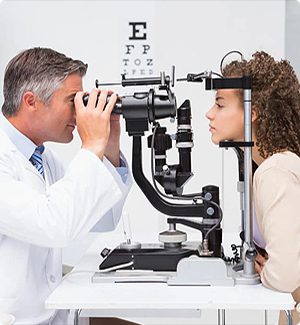- Home
- Eye Surgery
Eye Surgery - Icare medical

Eye Surgery
Eye surgery includes various procedures to correct vision problems or treat eye diseases. Whether for the correction of myopia, hyperopia, astigmatism or cataracts, these interventions are often carried out with advanced techniques and cutting-edge technologies. Patients can experience rapid recovery and significant improvement in their quality of life. Before any procedure, it is crucial to consult an eye health professional to discuss options, risks and potential benefits. With a thorough assessment, you will be able to make informed decisions for your visual health.

Some techniques in ocular surgery that we practice.
- Cataract Surgery
- Refractive Surgery
- Glaucoma Surgery
- Vitreo-Retinal and Corneal Surgery
Cataract Surgery
Phacoemulsification: Use of ultrasound to fragment and aspirate the cataract, followed by the insertion of an intraocular lens implant.
Refractive Surgery
LASIK (Laser-Assisted In Situ Keratomileusis): Reshaping the cornea with a laser to correct myopia, hyperopia, and astigmatism. PRK (Photorefractive Keratectomy): Removal of the corneal surface followed by laser application to correct vision.
Glaucoma Surgery
Trabeculectomy: Creation of a new drainage pathway to reduce intraocular pressure by removing part of the trabecular meshwork. Drainage Implants: Use of devices to facilitate the drainage of aqueous humor and control pressure.
Vitreo-Retinal and Corneal Surgery
Vitrectomy: Removal of the vitreous gel to address retinal issues such as tears or hemorrhages. Keratoplasty (Corneal Graft): Replacement of the damaged cornea with a graft from a donor.
The best way to protect your eyes
The best way to protect your eyes is to adopt healthy and preventative habits. This includes regular eye exams to quickly detect any potential problems. Protect your eyes from harmful UV rays by wearing quality sunglasses, and remember to take regular breaks from screen use to reduce eye strain. A diet rich in vitamins and antioxidants, such as carrots and spinach, can also support your eye health. By incorporating these practices into your daily routine, you will help preserve your long-term vision and maintain the health of your eyes.
